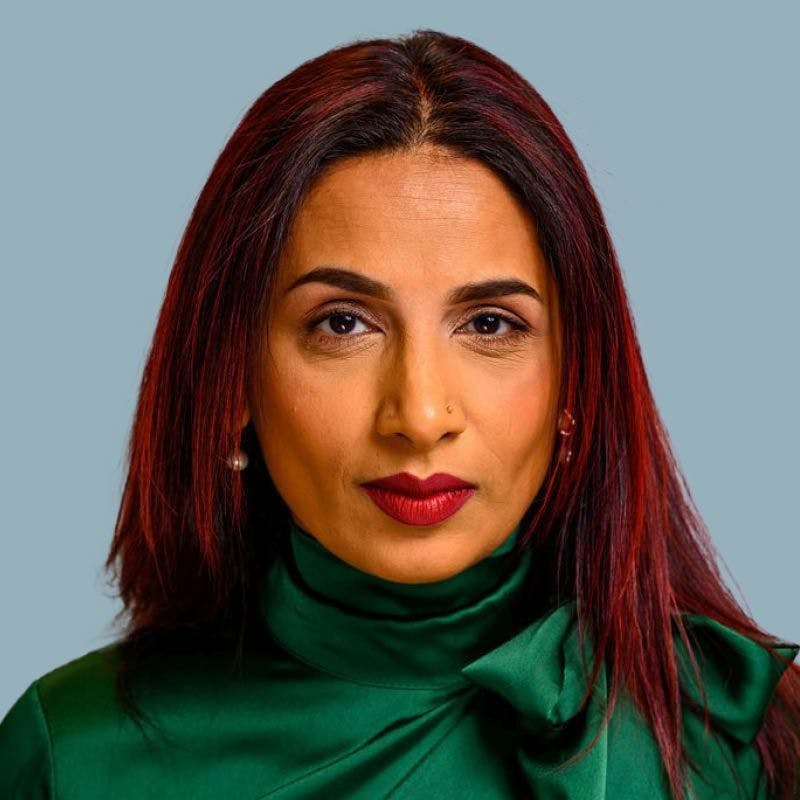Bradford solicitor Razia Jogi on reality of forced marriages
By Razia Jogi
Article published in the Bradford Telegraph 16.07.25 and reproduced with kind permission
Written by Natasha Meek, Digital Reporter and Audience & Content Editor at The Telegraph and Argus

Forced marriage could be happening more often than figures suggest, a solicitor claims, after shedding light into the reality of her cases.
Razia Jogi, an experienced solicitor and director based at Switalskis in Bradford, has spent more than 20 years supporting victims. The director regularly represents individuals in family courts and is nationally recognised for supporting vulnerable women and children in complex, cross-cultural cases.
New figures from the Government’s Forced Marriage Unit show there were 572 forced marriage enquiries received in 2024. These either led to further support or relevant advice without requiring continuous actions. There were also 240 cases relating to possible forced marriage or possible female genital mutilation (FGM). It marks a 15 per cent decrease in the number of cases received in 2023. But Razia has warned the figures won’t tell the whole story.
Speaking about cases before the forced marriage law in 2007, the solicitor said: “I had a number of cases where it would start with ‘I had an arranged marriage’ but when you explored it wasn’t an arranged marriage, there was no consent – it was a forced marriage.
“There was no specific legislation dealing with forced marriage. I knew of people who came to me because of domestic abuse, but the starting point was, they were in marriages they never consented to. There was no recourse then. There are now services, there’s legislation. There’s also the course of the law. Forced marriage is now criminalised.”
“It’s very difficult to ask for that help. There’s an expectation by one or both parents, sometimes the expectation is from the wider family.”
Razia said forced marriage is often linked to cases of domestic abuse, violence, threats and coercion.
The director said: “When a person is saying to their child ‘you need to do this, we need to do this for the family’, it’s said in a loving way: ‘If you don’t do this think about your father who’ll not speak to me’ or ‘life will become very difficult for all of us’, ‘If you don’t, how will your siblings marry?’. It’s emotional pressure.”
There were 32 cases in the Yorkshire region last year. Many of the queries sent to Razia never turn into cases. Some are scared by the court issuing a forced marriage protection order (FMPO) – a legal order designed to protect individuals from being forced into marriage against their will across the world.
“Some will just speak on the phone,” she said. “I’ll talk them through the process. The next question is, will my parents get the papers? Yes, they will. I will immediately think, as a young person who has no idea as to what goes on in court, I take my parents to court, ‘they’re going to get into trouble’, ‘they’re going to be really disappointed’.”
Safeguarding teams will take over if a person under 18 is involved – even if they choose to stop the court process.
“In 2024, a total of 63 cases – 26 per cent – involved victims whose mental capacity to consent to marriage was in doubt.
“Those with learning disabilities are particularly at risk,” said Razia.
She highlighted how awareness must start from a young age, with schools teaching about consent.
“When the word forced is used you’ve got all the negative connotations, but it’s not unusual in forced marriage cases for that force to be presented in a loving, concerned manner which comes across as nurturing,” Razia said.
“Normally your parents are there to protect you, they’ve raised you. There’s a distinction between forced and arranged. Arranged is when there’s free will and consent. In a forced marriage, consent isn’t there.
“Sometimes marriage is used as a tool to control behaviours. It’s ‘she was seen with a boy today, tomorrow having sex. It’s a form of control.’ It’s bringing unwanted behaviour – whether actual or perceived – into control.”
If you are concerned about forced marriage, contact Karma Nirvana on 0800 5999247 or the Forced Marriage Helpline on 020 7008 0151.
Find out how Switalskis can help you
Call Switalskis today on 0800 1380 458 . Alternatively, contact us through the website to learn more.




